News & Event


News & Event
News & Event
[The 103rd KISTEP Wednesday Forum] ‘The Role of Scientific Culture for Resolving Social Conflicts’
- Writer Kyungran Choi
- Date2019-04-25
- Hit965
KISTEP held the 103rd Wednesday Forum with the theme of ‘The Role of Scientific Culture for Resolving Social Conflicts’ on April 24th (Wed), 2019. There are various social conflicts related to Science and Technology (S&T) in our society, including GMO, mad cow disease, THAAD, radon, telemedicine, etc. To resolve these social conflicts, the role of scientific culture is important, and people's trust in S&T should support them.
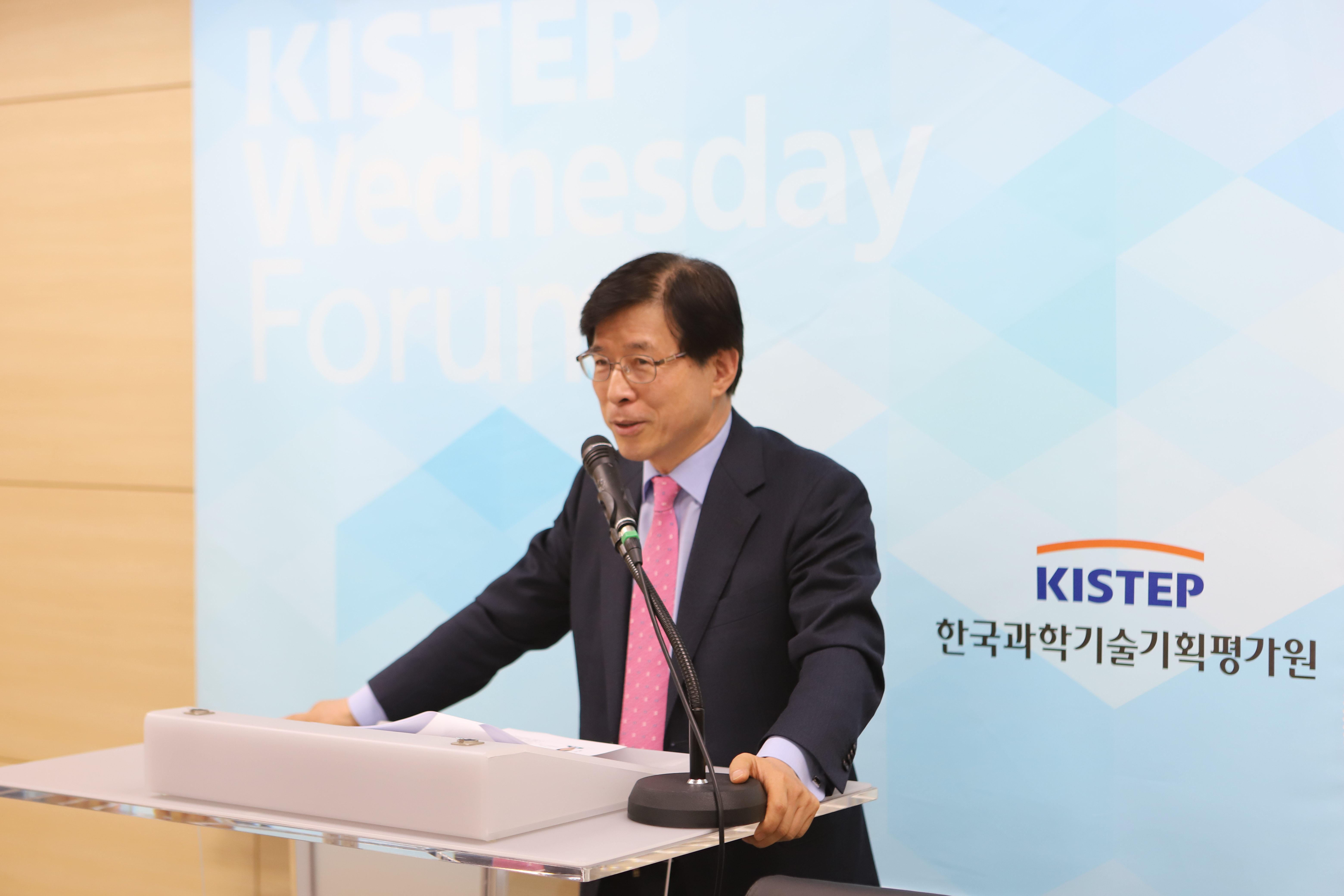
[▲ Sang-seon Kim, (President, KISTEP)]
The forum began with an opening address by President Sang-seon Kim (KISTEP), followed by presentation by Yeon Goo Choi (Director, Division for Science Culture, Korea Foundation for the Advancement of Science and Creativity (KOFAC)). Panel discussion were led by Ho Shik Youn (General Manager, Directorate for Academic Promotion, The Korean Federation of Science and Technology Societies (KOFST)), Tae Soon Park (Chief Director, Institute of Social Conflict), and Hyun Ho Shin (Representative Lawyer, Shin & Partners) and open floor discussion followed the last.
Director Choi explained, “S&T has been the central role of social change since the modern ages. Even the most innovative scientific research and technology will disappear without bringing about fundamental changes if it is not accepted into society and becomes a culture.” He added, “Even with advanced technology, social acceptance is difficult when it causes social problems or conflicts in ethics and law. We need technology acceptance policies such as citizen participation and public opinion, technology assessment, risk communication, public relations and ELSI assessment to improve social acceptance of S&T issues.”
Director Choi explained, “S&T has been the central role of social change since the modern ages. Even the most innovative scientific research and technology will disappear without bringing about fundamental changes if it is not accepted into society and becomes a culture.” He added, “Even with advanced technology, social acceptance is difficult when it causes social problems or conflicts in ethics and law. We need technology acceptance policies such as citizen participation and public opinion, technology assessment, risk communication, public relations and ELSI assessment to improve social acceptance of S&T issues.”
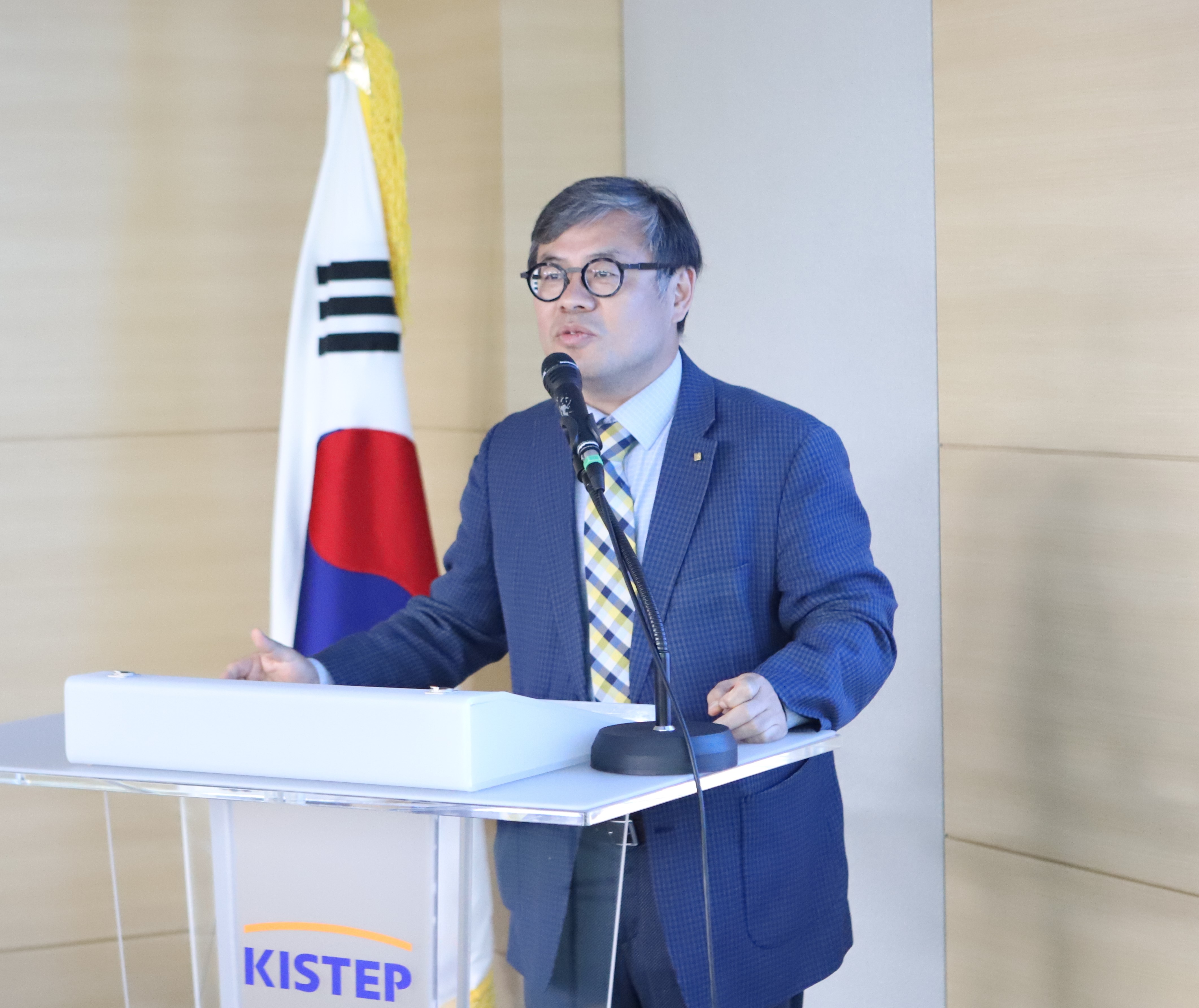
[▲ Yeon Goo Choi (Director, Division for Science Culture, Korea Foundation for the Advancement of Science and Creativity (KOFAC))]
Director Choi also said, “According to the results of the survey about public’s understanding of S&T, it shows that Korea's investment in S&T is steadily increasing, such as the government's R&D budget of over 20 trillion won, but the level of public interest is declining. The public's interest and understanding must be based on it to develop S&T.” He added, “Science is for everyone because it has public goods. If citizens' participation in S&T becomes active, such as the Public Debate Commission, science shop and living lab, it will increase social acceptance of S&T in the future. Ultimately, we have to popularize science and push for the spread of a scientific culture involving citizens.”
Lastly, he said, “When social development is carried out through S&T, the government should avoid from simple and spread-oriented modernization, rather we should accomplish reflective modernization with a focus on risks and safety. In other words, we should be wary of technological determinism and scientific expertism, and respond to a risk society," he also emphasized, "A balanced review in formulating S&T pollicies should be made not only from technological innovation perspective but also from a social perspective when the S&T policies are formulated. The social acceptance and settlement of S&T will be possible only when both scientific cultural policies for R&D and technology acceptance policies for new technology are implemented together.”
Lastly, he said, “When social development is carried out through S&T, the government should avoid from simple and spread-oriented modernization, rather we should accomplish reflective modernization with a focus on risks and safety. In other words, we should be wary of technological determinism and scientific expertism, and respond to a risk society," he also emphasized, "A balanced review in formulating S&T pollicies should be made not only from technological innovation perspective but also from a social perspective when the S&T policies are formulated. The social acceptance and settlement of S&T will be possible only when both scientific cultural policies for R&D and technology acceptance policies for new technology are implemented together.”
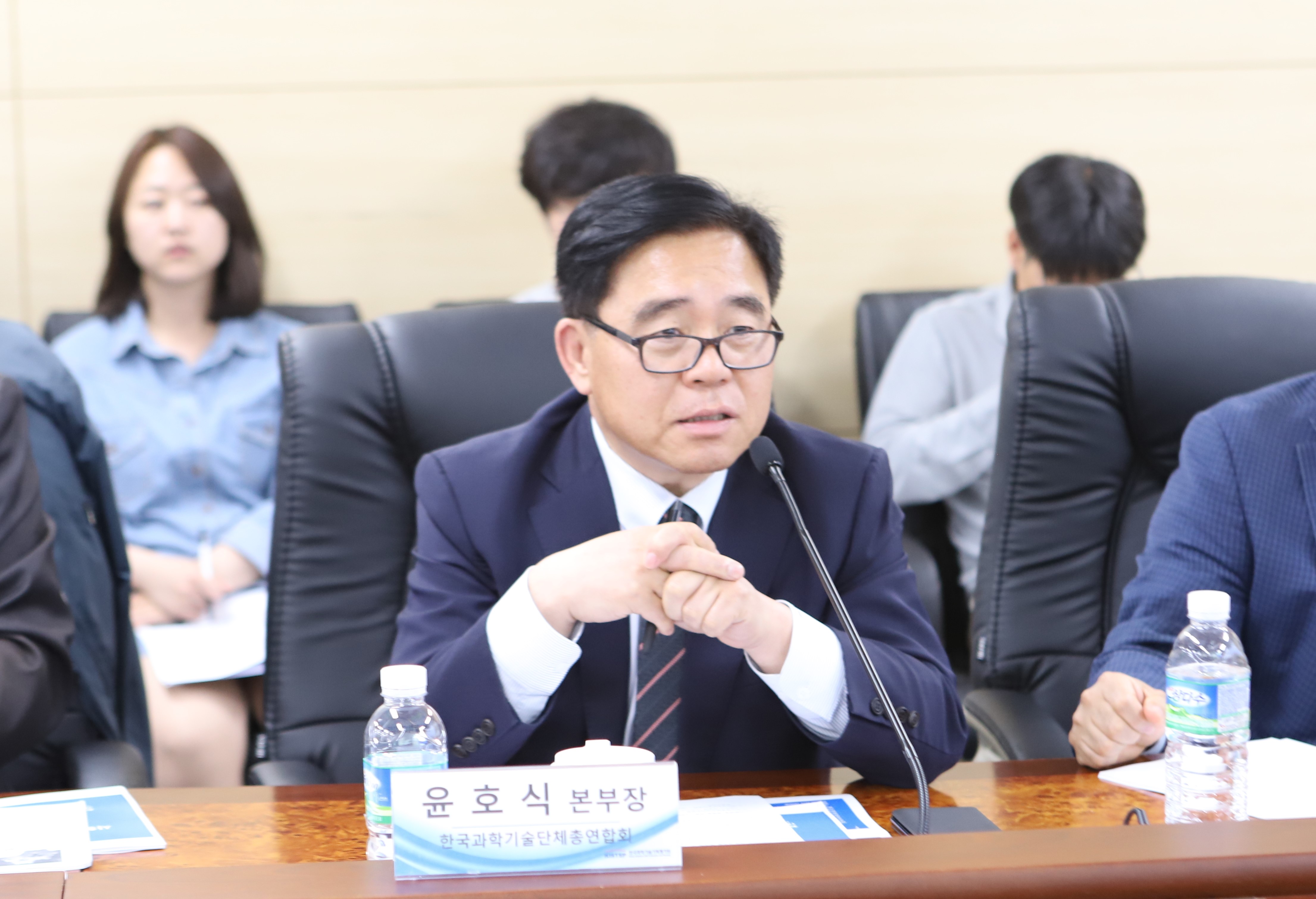
[▲ Ho Shik Youn (General Manager, Directorate for Academic Promotion, The Korean Federation of Science and Technology Societies (KOFST))]
In the following panel session, Ho Shik Youn (KOFST) said, “The recent social conflict related to S&T, including radon beds and fine dust has raised the issue of the public's lack of trust in S&T experts. The S&T experts need to present solutions for social conflicts based on the objective and empirical evidence.” He suggested, “It is necessary to come up with plan through social organizations or constructive system at the national level to expand social acceptance of S&T and restore trust in experts."
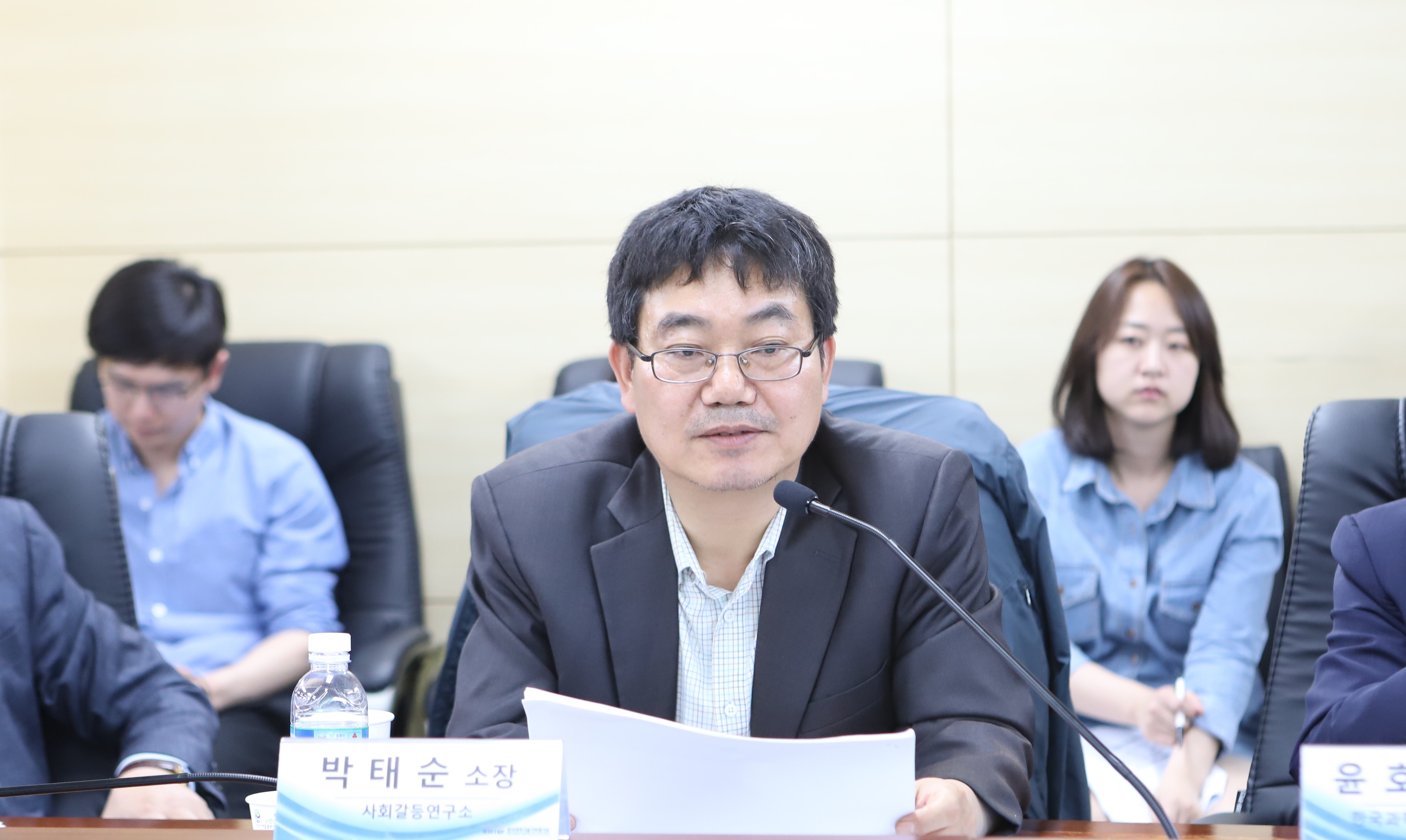
[▲ Tae Soon Park (Chief Director, Institute of Social Conflict)]
Chief Director Park said, "Given the social conflict surrounding the S&T issues including Kori Nuclear Power Plant, safety based on empirical evidence is important, but it requires the resolution of anxiety over safety at an emotional level involving policy means such as reward systems. In other words, not only scientific approaches, but also sociological approaches play an important role in social acceptance of S&T,” and he added, “Science experts should make the public understand S&T issues based on the exact causes and evidences for the facts and uncertainties of social conflicts, thus preventing useless debate. We need real-life S&T that can listen to what the public is wondering and offer solutions.”
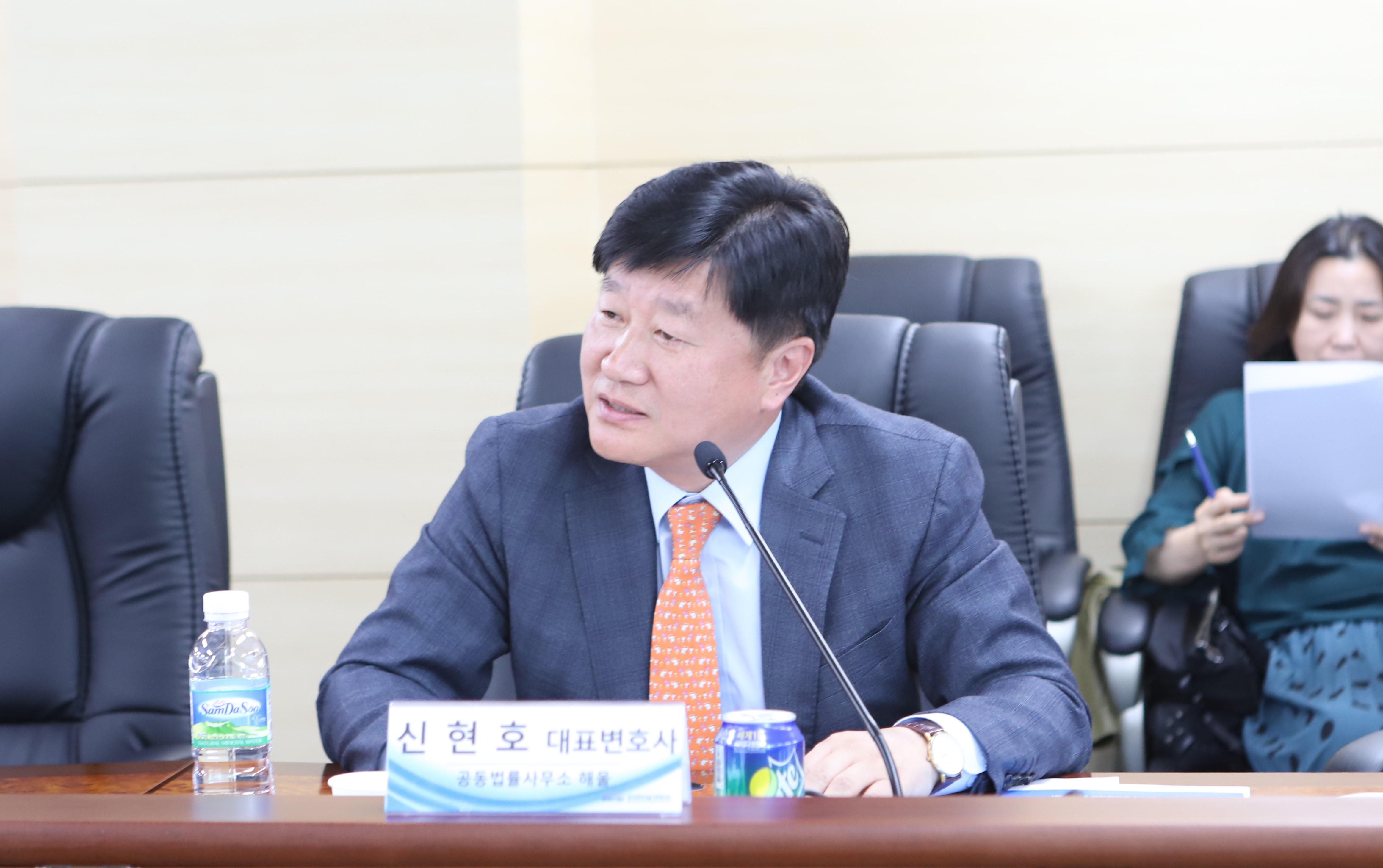
[▲ Hyun Ho Shin (Representative Lawyer, Shin & Partners)]
Lawyer Hyun Ho Shin said, "Social conflict resolution should be made based on human rights. It is necessary to be wary of commercial and political uses of S&T and have preventive safety such as the Personal Information Protection Act and the Bioethics Act. In addition, the government should impose severe social responsibility and follow-up economic compensation in the event of S&T-related accident.” He emphasized, “Legislation for procedural control is needed to prevent the problem of demagoguery of science."
